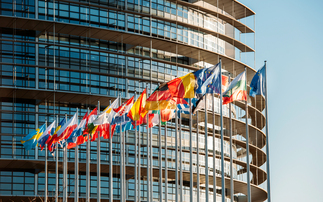Business for Inclusive Growth (B4IG) coalition will launch at the G7 summit this weekend, warning inequalities around the world are economically-damaging
More than 30 global companies boasting combined revenues in excess of $1tr have thrown their weight behind a drive to tackle inequality, support inclusive economic growth, and promote workplace diversity as part of a new initiative launching at this weekend's G7 Summit in France.
The Business for Inclusive Growth (B4IG) coalition, which is spearheaded by Danone chairman and CEO Emmanuel Faber, will officially launch this evening as leaders of the world's biggest economies come together for talks in the French coastal town of Biarritz.
Members of the coalition, which include BNP Paribas, IKEA, Unilever, and Goldman Sachs, have signed a pledge to take concrete actions to ensure that the benefits of economic growth are more widely shared.
They plan to focus on a number of issues also targeted in the UN Sustainable Development Goals (SDGs), including persistent inequalities of opportunity, reducing regional disparities and combating gender discrimination.
The three-year programme aims to boost opportunities for disadvantaged and under-represented groups through retraining and upskilling, in addition to promoting diversity on company boards and tackling inequalities throughout supply chains, said the OECD, which is managing the initiative.
The 34 firms in the coalition, which also include Virgin, JP Morgan, L'Oreal, and AXA, have also pledged to step up business action to advance human rights, build more inclusive workplaces, and "strengthen inclusion in their internal and external business ecosystems".
Ahead of the summit, the B4IG pledge will first be presented to French President Emanuel Macron during a meeting with business and civil society leaders at the Élysée Palace in Paris, the OECD said.
"Growing inequality is one of the biggest social challenges in the world today, perpetuating poverty, undermining social cohesion and trust," said OECD Secretary-General Angel Gurría. "Sustainable economic growth means inclusive economic growth. It means giving every individual the opportunity to fulfil her or his potential, the chance not only to contribute to a nation's growth but to benefit from it, regardless of their background or origins."
Companies in the B4IG will work closely with governments and a number of public-private projects are expected to emerge from the programme, with the OECD contributing policy analysis, research, and expertise, Gurría explained.
The OECD plans to publish an evaluation of B4IG projects after the programme finishes in three years' time, alongside guidance for promoting inclusive growth through joint public-private action for measuring business performance, it said.
Faber, who is leading the initiative as CEO and founder of Danone, said inequalities were "economically-damaging", and warned that the market economy "ill not last without more inclusiveness".
"It's not a matter of ideology, it is a hard realism that calls us to a collective and inclusive action, for both governments and companies," he said. "With B4IG, our aim is to build a constructive dialogue to advance social inclusion, pilot and scale innovative, inclusive micro-economic business models, and thereby contribute to inform macroeconomic policies."
It came as the We Mean Business Coalition, a group of major companies taking collective action on climate change, also wrote to G7 leaders ahead of the summit to stress the economic necessity and opportunities from achieving net zero greenhouse gas emissions by 2050.
Transitioning to a net zero emission world within the next 30 years could create $26tr in economic benefits and 65 million jobs by 2030, the letter states, and G7 leaders should therefore reaffirm their commitment to climate action by strengthening their pledges under the Paris Agreement.
Delivering ambitious climate action goals on a pathway to net zero by 2050 will unlock finance and provide businesses with certainty to invest in the green economy, the Coalition said.
"Building a prosperous, zero-carbon economy by 2050 requires a transformation of unprecedented pace and scale," the letter states. "This transition is achievable, but only when decisive business leadership is complemented by ambitious government policies, each positively reinforcing each other."







